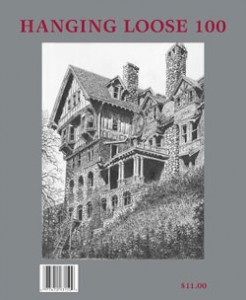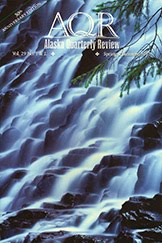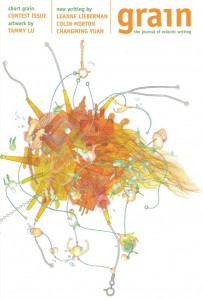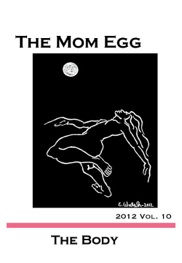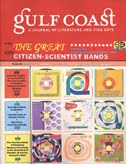 I’ve known Tom Williams for many years through my work with NewPages; we have one of those “AWP Annual” friendships – a beer or two over the course of the conference – and then business-as-usual e-mails throughout the year. I was surprised when he told me he’d published a book, and of course, I was curious to read it, not having spent much time reading Tom’s other works (which is my own fault, since he’s published quite a bit).
I’ve known Tom Williams for many years through my work with NewPages; we have one of those “AWP Annual” friendships – a beer or two over the course of the conference – and then business-as-usual e-mails throughout the year. I was surprised when he told me he’d published a book, and of course, I was curious to read it, not having spent much time reading Tom’s other works (which is my own fault, since he’s published quite a bit).
Tom Williams’s fiction, essays, and reviews have appeared in over thirty publications, including Boulevard, Barrelhouse, Indiana Review, The Main Street Rag, Night Train and Pleiades. A former James Michener Fellow, he has received individual artist fellowships from the Wisconsin Arts Board and the Arkansas Arts Council. He currently is an associate editor of American Book Review and Chair of Humanities at the University of Houston-Victoria. He lives in Victoria, Texas with his wife, Carmen Edington, and their son, Finn.
The Mimic’s Own Voice
After reading just the first page, I had a renewed sense of hope in the greatest of all styles that I have not read in contemporary literature for some time: the long sentence. I kid you not. I raved to others that there still existed writers who were not afraid of the long, complex, multi-comma, multi-independent clause sentence! The book begins: “In the halcyon days of professional mimics, shortly after they’d outpaced their predecessors, the vernacular storytellers, who had, a decades earlier, wrested the comedic throne from the one-liner royalty, it would have been difficult to name a town of ten thousand souls that didn’t possess some venue where performed those artists who made their fame and fortune with stunning mimicry of the period’s political leaders and actors, athletes and musicians, scholars, and men of science.” And it continues from there.
The story itself is compelling – about a mimic, Douglas Myles, who, through studying the masters before him and perfecting not only their styles, but their characters, becomes the best of his generation of mimics. Mimicry already seems a lost performance art – other than Rich Little, I don’t know of any others so well-known today. Williams’s taking this on as his subject is either terrifically risky or terrifically safe, I haven’t decided which, and maybe, both.
The protagonist, Myles, is absolutely endearing in his humble nature, his complete lack of braggadocio, and his self-assured but continually cautious nature. Readers learn a great deal about him, the story being written as a retrospective of his life after his quietly passing, yet we always feel held just at arms length. This is repeatedly expressed as there being lack of information about certain aspects of his life, but also because it was the nature of Myles’s character, letting people just so close to him, from his beginnings at the comedy club, to great fame, to seclusion at the end of his life.
While I’m sure there is much to be appreciated in the humor of Williams’s narrative description, as Myles goes head to head with some of the other great popular mimics of his times (and summarily knocks them out of the profession), and in how Myles stuns audiences with his great talent for mimicking both his predecessors and contemporaries, I have to admit I never had a laugh-out-loud moment in the book. Instead, I was compelled by the intensity and dark nature of Myles’s character and his reactions to the world around him. While I knew what I wanted to happen next in the story and how I hoped Myles might behave, I wasn’t so much wrong as it wasn’t the great sweeping fairy tale I had hoped for. Instead, Myles tends to go in the other direction of less fame, less glory, less ego. I was compelled to read what I didn’t want to accept as the ordinary story of a great star, what with all we see around us of celebrities rising to fame and coming crashing back down. The great attraction to Myles’s character is how he seems to avoid all of this, to not choose it, and to turn away from it all. He is the consummate professional and antithesis of all we have come to expect from these hero journeys of pop culture icons.
Now, several weeks after having finished the book, Myles’s character is still very much in my head. Why did he choose to live his life thus? Why wouldn’t he do this or that? I still go back and forth about if what he chose for himself was really the best, or if he could have been so much more if only… I just can’t quite settle myself on this character, which in all, makes this a great read.
Read a sample from the book on Main Street Rag’s website.

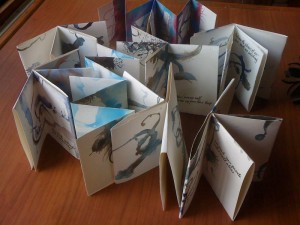
 – novellas
– novellas